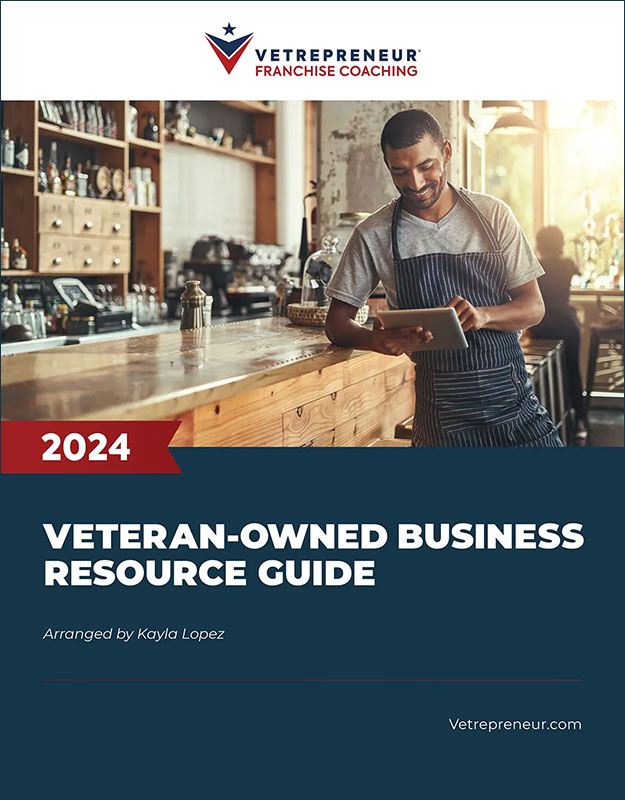Transitioning from military service to becoming a franchise owner involves significant financial planning. Securing the necessary funding is a critical step in making your franchising dream a reality. This article will provide comprehensive guidance on financing your franchise, highlighting the various funding options available to veterans and offering practical tips to navigate the financing process effectively.
Understanding the Costs Involved
1. Initial Investment:
The initial investment for a franchise includes the franchise fee, equipment, inventory, and working capital. It’s essential to have a clear understanding of these costs upfront to determine the total amount of funding required. The Franchise Disclosure Document (FDD) provides detailed information on the initial investment needed for the franchise.
2. Ongoing Costs:
Beyond the initial investment, consider ongoing costs such as royalties, marketing fees, rent, utilities, and employee salaries. Having a comprehensive financial plan that accounts for these recurring expenses is crucial for long-term sustainability.
Exploring Funding Options
1. SBA Loans:
The Small Business Administration (SBA) offers loan programs specifically designed to help veterans start and grow their businesses. The SBA 7(a) loan program and the SBA Veterans Advantage program are popular options that provide favorable terms and lower down payments. These loans can cover a significant portion of the initial investment and working capital needs.
2. Veteran-Specific Grants and Programs:
Several grants and funding programs are available exclusively to veterans. Organizations such as the Department of Veterans Affairs (VA) and non-profits like the Institute for Veterans and Military Families (IVMF) offer grants, training, and resources to support veteran entrepreneurs. Research these opportunities to find grants that align with your business goals.
3. Franchisor Financing:
Many franchisors offer financing programs to help new franchisees cover the initial investment. These programs may include loans, deferred payment plans, or discounts on franchise fees. Speak with the franchisor to understand the financing options they offer and determine if they meet your needs.
4. Traditional Bank Loans:
Traditional bank loans are another option for financing your franchise. While these loans may require a higher credit score and collateral, they can provide the necessary capital to start your business. Prepare a detailed business plan and financial projections to present to lenders and demonstrate the viability of your franchise.
5. Personal Savings and Investments:
Using personal savings or investments can be a viable way to finance your franchise. This option allows you to avoid taking on debt and provides more control over your finances. However, ensure you have a sufficient financial cushion to cover personal and business expenses during the initial stages of your franchise.
Preparing for the Financing Process
1. Building a Strong Business Plan:
A well-structured business plan is essential for securing funding. Your business plan should include a detailed description of the franchise, market analysis, financial projections, and a marketing strategy. This plan will demonstrate to lenders and investors that you have a clear vision and a solid strategy for success.
2. Improving Your Credit Score:
Your credit score plays a significant role in the financing process. Review your credit report and take steps to improve your score if necessary. Paying down debt, addressing any errors on your credit report, and maintaining a good payment history can enhance your creditworthiness.
3. Gathering Necessary Documentation:
Lenders and investors will require various documents during the financing process. Prepare documents such as tax returns, bank statements, personal financial statements, and proof of military service. Having these documents readily available will streamline the application process and demonstrate your preparedness.
Securing funding for your franchise requires careful planning, research, and preparation. By understanding the costs involved, exploring various funding options, and preparing thoroughly, you can successfully navigate the financing process and take a significant step towards becoming a franchise owner. At Vetrepreneur.com, we are committed to supporting veterans in their entrepreneurial journey. Contact us for personalized guidance and resources to help you achieve your business goals.
Explore our comprehensive Resources Guide and gain access to additional financing resources through the Vetrepreneur® Portal. Sign up for Vetrepreneur Franchise Coaching at Vetrepreneur.com/franchise-coaching where our expert advisors will guide you seamlessly from inquiry to discovery, matching you with your ideal franchise and supporting you through every step of franchise ownership.
2024 Veteran-Owned Business Resource Guide
What’s inside?
This guide is meant to serve as a resource for you in your journey to franchise ownership. We will uncover some of the funding opportunities and resources available to you as a veteran or military spouse-owned business.
- Tax Benefits and Waivers: State tax incentives, waivers and minority business programs available.
- Education and Mentoring: Types of programs you can utilize to grow, support and gain valuable knowledge that will lead to successful outcomes. Veteran-focused networking and mentoring programs.
- Funding Streams: State programs, loan programs, grant opportunities and other resources.
- Certifications and Supplier Diversity: Certification and supplier diversity programs that focus on VOBs, SDVOBs and SVOBs that allow access to state and federal contracts.






